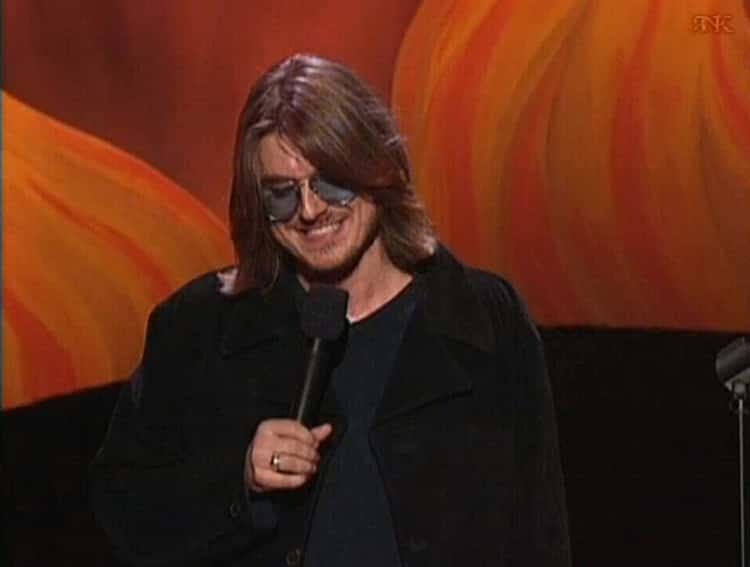Diving into the world of comedy and joke writing can be as thrilling as it is daunting. The ability to craft a joke that can make a room full of strangers erupt into laughter is a unique skill. It’s an art form that combines wit, timing, observation, and a touch of personal flair. For beginners eager to dip their toes into the comedic pool, starting with the basics is key. This post will guide you through the foundational steps of joke writing, inspired by the masters of the craft and seasoned with advice from renowned writers.
The Single Line Setup-Punchline Jokes
At the heart of comedy lies the classic setup-punchline structure. These jokes are concise, often consisting of just one line that sets up the scenario, followed by a punchline that delivers the unexpected twist. This structure is not just a stepping stone for beginner joke writers; it’s a staple used by comedy legends to create memorable, laugh-out-loud moments.
Why Start Simple?
Starting with single-line setup-punchline jokes serve multiple purposes. First, it hones your ability to distill humor down to its essence. It forces you to focus on the economy of words, ensuring every word plays a role in the punch. Secondly, it trains you to think in terms of misdirection, a crucial element in comedy where the punchline veers off from where the setup seems to be heading.
Adding Tags: The Punchline’s Encore
Once you’re comfortable crafting single-line jokes, the next step is to add tags. Tags are additional punchlines that follow the initial punch, extending the laughter without needing a new setup. They’re like bonus rounds in a game, each one aiming to outdo the previous. Tags challenge you to keep the comedic momentum going, enriching your joke with layers of humor.
Learning from the Masters: Mitch Hedberg and Steven Wright
Look no further than Mitch Hedberg and Steven Wright for a masterclass in single-line setup-punchline jokes. Both comedians are renowned for their distinct styles, delivering jokes that are as profound as they are hilarious. Their performances are treasure troves of inspiration, showcasing how to play with language, perspectives, and the absurdities of life, all within the confines of one or two sentences.
The New Comedy Writing Step by Step by Gene Perret
If you’re serious about honing your joke writing craft, “The New Comedy Writing Step by Step” by Gene Perret is an invaluable resource. As a writer for Bob Hope and mentor to many successful comedians, Perret’s insights offer a roadmap from the basics to the nuances of comedy writing. This book is not just about techniques; it’s about developing a comedic mindset, understanding timing, and finding your unique voice in the comedy world.
Starting Your Joke Writing Journey
Embarking on your joke writing journey begins with observation. The world around you is filled with comedic potential, from the mundane to the extraordinary. Start by jotting down observations, thoughts, or even overheard conversations that spark a hint of humor. Then, challenge yourself to find the twist, the element of surprise that turns a simple observation into a punchline.
Practice is key. Write daily, experiment with different setups and punchlines, and don’t be afraid to test your jokes on friends or even an audience at an open mic. Comedy is subjective, and not every joke will land, but each one is a step forward in your comedic journey.
Conclusion
Joke writing is an art that blends creativity with precision. Starting with single-line setup-punchline jokes build a foundation that you can expand upon with tags, longer bits, and eventually, full comedy sets. By studying the greats and arming yourself with the right resources, you’re setting the stage for a journey filled with laughter, learning, and endless possibilities. So, grab your notebook and start writing; the world could always use more laughter.
FAQs
Q: How often should I write jokes?
A: Aim for daily practice. Consistency is key to developing your skills and finding your comedic voice.
Q: What if my jokes aren’t funny to others?
A: Comedy is subjective. Focus on learning from each experience and don’t get discouraged. Every great comedian has had jokes that didn’t land.
Q: Can I make a career out of joke writing?
A: Absolutely. Many comedians and writers started with joke writing and went on to have successful careers in stand-up, television, and film.
Remember, every comedic journey starts with a single joke. The path from a blank page to a roaring audience is paved with persistence, creativity, and a willingness to embrace the unpredictable nature of comedy.

